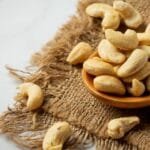The traditional Indian Pickles are becoming popular worldwide. To have these products accepted, the food processors must establish product conformity to quality and food safety standards for Indian pickles or Achaar.
Table of Contents
The traditional Indian Pickles are becoming popular and acceptable among the Indian communities the world over. With obviously significant changes in the last few years, eating norms and styles have also changed. The taste and flavour of the Indian Pickles are mouth-watering and are a part of every meal.
Traditional Indian Pickles are mainly prepared from fresh fruits and vegetables, vegetable oils, spices, vinegar/acetic acid, and preservatives, like Sodium Benzoate/Sodium Metabisulphite. The ingredients used as raw materials must be safe, hygienic, and quality assured to produce safe and wholesome finished products.
Pickles may be of combinations as given below:
- Pickles in Citrus juice or brine conforming to the following requirements:
- Drained Weight – Not less than 60.0 percent
- Sodium Chloride content when packed in Brine – Not less than 12.0 percent
- Acidity as Citric Acid when packed In Citrus Juice – Not less than 1.2 percent
- Pickles in Oil
- Drained Weight – Not less than 60.0 percent
- Fruit and Vegetable pieces shall be practically remaining submerged in oil
- Pickles in Vinegar
- Drained Weight – Not less than 60.0 percent
- Acidity of vinegar as acetic acid – Not less than 2.0 percent
- Pickle without medium means the pickles other than enumerated above. It may contain ingredients given in Para 1 of this specification. Such pickles shall be labelled as “(give the name of vegetable or fruits) Pickle.”
Market Growth and Global Reach
The Indian pickles market continues to grow steadily. In 2024, the market was valued between US$595 million and US$870 million (over INR 6,500 crore), according to different sources. This growth is being driven by demand from traditional Indian households as well as rising global interest, which has significantly expanded export potential.
By 2034, the market is expected to reach close to US$ 1 billion, supported by a CAGR of about 5.3 percent. Some industry estimates suggest even stronger expansion, projecting the market to exceed INR 12,000 crore (approx. US$ 1.4-1.5 billion) by 2030, which aligns with a CAGR of about 7-8 percent. Within the broader category, packed pickles represent a robust segment. The Asia-Pacific packed pickles market was valued at roughly USD 6.5 billion in 2025.
In India, this segment is expected to grow continuously at an annual rate of about 4.7 percent through 2035. By 2029, the Indian pickles market as a whole is forecast to reach nearly INR 11,500 crore (approx. US$ 1.38 billion).
Different Types of Indian Pickles
Commercially available Indian pickles are of two types. 1) Fermented pickles and 2) Unfermented pickles.
Fermented Pickles
Fermented Pickles are classified as: 1 Brine pickle, 2 Oil pickle, 3 Vinegar pickle, and 4 Sweet pickle.
Brine Pickle: Salt-cured pieces are freshened and preserved in fresh brine and vinegar. For brine pickles, a minimum prescribed salt of 8 to 12 percent is permitted. Sometimes, even 16 percent salt is also added. Additions of spices help to improve the flavour of brine pickles.
Oil Pickles: The salt stock is washed to reduce the salt to 5-6 percent and covered with oil. Cured mango, lime, gooseberry, chillies, and mixed vegetables are pickled with 5 to 6 percent salts. The contents are left for four to eight days with occasional mixing. Edible oil is poured over the pickle to form a thick layer. The oil layer creates an anaerobic condition.
Vinegar Pickle: The brine is drained from the salt-cured product, excess salt is removed, and the material is kept in plain vinegar with 2 to 3 percent salt for several weeks. Vinegar is added to 1/3 of the total product.
Sweet Pickle: Salt-cured pieces are freshened, and pickles are prepared with the addition of sugar or jaggery and selective spices. The salt concentration of 5-8 percent and sugar 40-60 percent are added.
Unfermented Pickles
In some pickles, such as lime, lemon, and immature mango, pickles are prepared without undergoing fermentation.

Quality and Food Safety Standards for Indian Pickles
For Indian pickles or achaar to gain acceptance in both domestic and international markets, manufacturers must demonstrate compliance with established food safety and quality standards. Along with maintaining traditional taste, these products must also preserve their nutritional value and overall wholesomeness. This creates a strong need for upgraded technologies that can reduce microbiological contamination, minimize metallic impurities, and control residual pesticide levels.
As per Food Safety and Standards (Food Products Standards and Food Additives) Regulations, 2011, pickles mean the preparation made from fruits or vegetables or other edible plant material including mushrooms free from insect damage or fungal infection, singly or in combination preserved in salt, acid, sugar or any combination of the three. The pickle may contain onion, garlic, ginger, sugar, jaggery, edible vegetable oil, green or red chillies, spices, spice extracts/oil, lime juice, vinegar/acetic acid, citric acid, dry fruits, and nuts. It shall be free from copper, mineral acid, alum, and synthetic colours, showing no sign of fermentation.
Quality Assurance/ Control for Indian Pickles
Processed food free from contaminants will not cause any harm, injury, or illness to the consumer. Continuous quality control/testing from raw materials to finished products ensures complete purity and consistent batch-to-batch performance. For quality assurance/control, food safety may be broadly categorised as follows:
- Hygienic/Sanitary conditions of production/processing, packaging, and storage
- Chemical Contamination
- Food Additives/Preservatives
- Metallic Contamination
- Residual Pesticides Contamination
- Microbiological Contamination
- Toxic Contamination
You may also like to read…
- India UAE Agrifood Trade: An Expanding Strategic Relationship
- Sustainability Challenges for Food Industry: From Supply Chains to Consumers
- Top 10 Dairy Companies in India and Their Leading Milk Brands
- India’s First Camel Milk Plant Strengthens Farmer Incomes
- Riddhi Siddhi Gluco Biols Signs APA for Cargill India’s Davangere Starch Business
Hygienic/Sanitary conditions of production/processing, packaging and storage of Indian pickles
The control of hygienic conditions at the source of production/processing assures safety. Unhygienic hazards are controlled at all the operations of processing, packaging, and storage.
The proper sanitation in the processing unit must also be ensured. The units should be designed to avoid waste lines through or over process areas, raw materials/ingredients storage, and finished products storage areas. Any leakage or seepage through the waste pipes can lead to serious health hazards.
Chemical Contamination
The control of hygienic conditions at the source of production/processing assures safety if unhygienic hazards are controlled at all processing, packaging, and storage operations.
The proper sanitation in the processing unit must also be ensured. The units should be designed to avoid waste lines through or over process areas, raw materials/ingredients storage, and finished products storage areas. Any leakage or seepage through the waste pipes can lead to serious health hazards.
The chemical contamination may be classified as follows:
Food Additives/Preservatives used in Indian Pickles: Food Additives/preservatives like synthetic colouring matters, artificial sweetening agents, antioxidants, emulsifiers/ stabilizers, flavours/flavour enhancers, etc., must be approved conforming to BIS Standards and processed under Good Manufacturing Practices (GMP).
Metallic Contamination: The major metallic contaminants occurring in food products are Lead, Arsenic, Copper, Tin, Zinc, Chromium, Iron, Cadmium, Mercury, Nickel. These should be within limits prescribed in the standards.
Pesticides/Insecticides Contamination: It is essential that the fruits and vegetable products be thoroughly cleaned by washing with water to remove the levels of pesticides. The levels of the Residual Pesticides must be within be prescribed limits of the safety standards.
The pesticides are used indiscriminately to protect them during the cultivation of fruits, vegetables, oilseeds, and spices. As a result, large quantities of pesticides are entrapped on these products.
Microbiological Contamination
Microbiological contamination is the most common among the processed foods. It has been stated that microbiologically contaminated food is perhaps the most prevalent problem globally, as shown by the increased incidences due to microbiological hazards. Therefore, the microbial load of the food products must be within the prescribed limits of the safety standards.
Toxic Contamination
♦ The adulteration of spices which is an active ingredient of pickles is rampant in our country. The spices also carry hazardous toxins, aflatoxins, and also contain carcinogenic dyes. The spices used as an ingredient must be ensured about their safety and conformity to BIS/ FSSAI standards.
♦ Vegetable Oils, i.e., Mustard Oil, are adulterated with hazardous Argemone Oil. It should be ensured that they are of a standard quality conforming to BIS/ FSSAI Standards.
♦ It should be ensured that ingredients are free from Polynuclear Aromatic Hydrocarbons (PNAH).
Prevention of Contamination
Since most pickles are being processed in an unorganized sector, the products available are sometimes defective, contaminated, or even adulterated, which affects their safety and causes health hazards. It is basically due to laxity in the hygienic and sanitary conditions and prescribed food standards. The ultimate victim of this negligence is the poor consumer. Therefore, the consumer has the right to demand safe, hygienic, and quality-assured food products.
Processors must adopt the latest technologies that help upgrade the quality and use of the raw materials and ingredients of approved quality. Furthermore, the pickles must also be made available only in suitable food-grade packaging. It helps enhance shelf life, maintains hygienic conditions, protect from microbiological contamination, insect infestation, and retain wholesomeness.
Licensing and Registration Procedure for Indian Pickles/Achaar
The Pickles/Murabbas are covered under the mandatory control to have an FSSAI License under the FSS Act, 2006. Therefore, it is essential that they conform to the quality standards laid down in the FPO. Standard. All the manufacturers/processors should ensure that the products processed are regularly monitored for the quality parameters stated in the FPO/ BIS/FSSAI Standards batch-wise.
It is better that they adopt the latest Total Quality Management Systems (TQMS) like ISO 9001-2000 coupled HACCP Systems, which protects the food from adulteration/contamination and helps the industries process safe hygienic and quality-assured food products. Also, the concept of organic farming and the availability of organic foods should be taken as a positive step towards safe and healthy food.
As per Section 31(1) & 31(2) of FSS Act, 2006, every Food Business Operator in the country is required to be licensed/registered under the Food Safety and Standards Authority of India.
- The licensing and registration procedure and requirements are regulated by Food Safety and Standards (Licensing and Registration of Food Business) Regulations, 2011.
- As per FSS (Licensing & Registration) Regulations, 2011, Licenses and Registrations are granted to FBOs in a 3-tier system: 1 Registration, 2 State License, and 3 Central License.
FSSAI registration is done online through Food Safety Compliance System (FoSCoS) on the FSSAI website.
- Food Licensing and Registration System (FLRS) has been replaced by FoSCoS.
- Registration is meant for petty food Food Business Operators (FBOs).
State FSSAI License: Medium size food manufacturers/processors/transporters having income between ₹ 12 lakhs and ₹ 20 crores
Centre FSSAI License: Large size food manufacturers/processors/transporters or importers having income between > ₹ 20 crores
- License period: 1 – 5 years
- More license fee if license is required for more than 5 years
- FBO can’t renew the License or Registration if it is not applied before the expiry of license/registration.
- Once the license/registration is expired, the FBO has to apply afresh for a new license/ registration.
FAQs on Safety Standards for Indian Pickles
What are Indian Indian Pickles/Achaar
As per FSS Regulations, 2011, pickles mean the preparation made from fruits or vegetables or other edible plant material including mushrooms free from insect damage or fungal infection, singly or in combination preserved in salt, acid, sugar or any combination of the three.
What are the ingredients for Indian Pickles/Achaar
Traditional Indian Pickles are mainly prepared from fresh fruits and vegetables, vegetable oils, spices, vinegar/acetic acid, and preservatives, like Sodium Benzoate/Sodium Metabisulphite.
What are different Types of Indian Pickles/Achaar
Commercially available Indian pickles are Fermented pickles and or Unfermented pickles. Fermented pickles are Brine pickle, Oil pickle, Vinegar pickle, and Sweet pickle.
Quality Control for Indian Pickles/Achaar
The Pickles/Murabbas are covered under the mandatory control to have FSSAI License under FSS Act, 2006. Therefore, it is essential that they conformed to the quality standards laid down in the FPO Standard.
Photo created by freepik

















